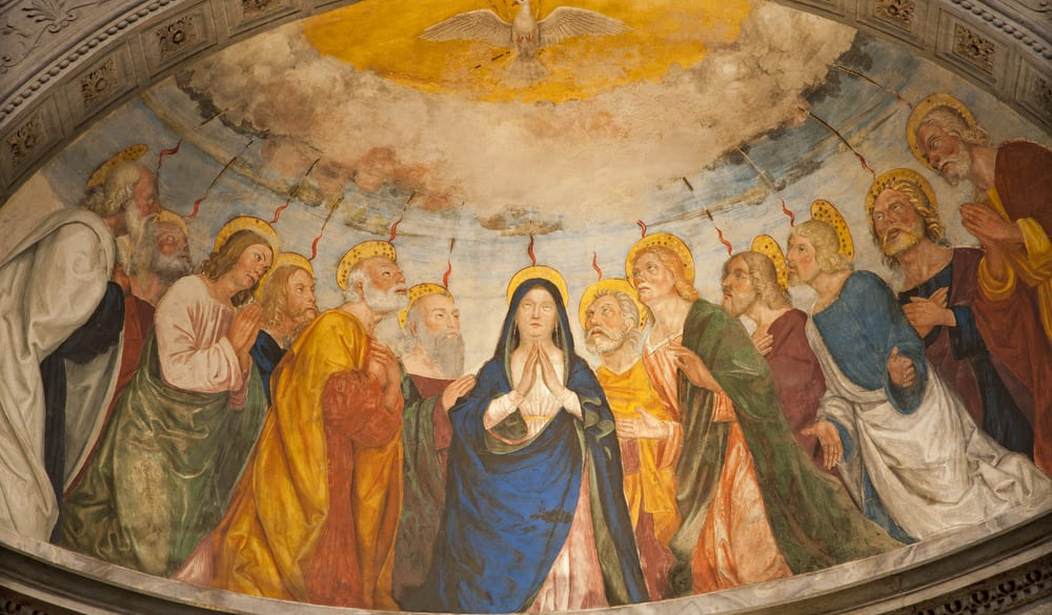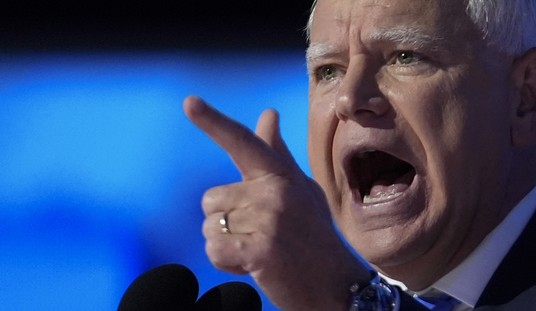My essay on the New Nationalism and the sense of the sacred in the West appears in the December/January issue of Standpoint Magazine, the UK monthly edited by Daniel Johnson.
Some extracts appear below. Read the whole essay here.
The New Nationalists emerged in response to specific irritations: EU meddling in the UK, hollowed-out manufacturing and surging immigration in the U.S., the migrant wave in Germany, and so forth. But there is a deeper motivation for the nationalist resurgence. This could be seen in November in Poland, when 60,000 nationalist marchers paraded through Warsaw, many under signs declaring, “We want God!” Polish nationalism contains chauvinist and anti-Semitic elements at its fringes, to be sure, but the religious fibre that set Poland in opposition to the Soviet Union is not entirely attenuated.
Donald Trump’s election victory stemmed in part from an economic protest vote, notably in the rust belt states of Ohio, Michigan and Wisconsin. But Trump also garnered a higher proportion of the evangelical Protestant vote than any other candidate in U.S. political history, by a margin of 80-16 among white evangelicals, according to exit polls cited by the Washington Post. He also won overwhelmingly among America’s small but indicative community of Orthodox Jews. It may seem odd to think of the thrice-married and occasionally vulgar Trump as the champion of America’s religious Right, but the data are unambiguous.
[The new nationalisms] all are manifestations of what is commonly called the identity crisis of the West, but might better be termed the West’s struggle with the sacred. By “sacred”, I mean that which endures beyond our lifetime and beyond the lifetime of our children, the enduring characteristics that make us unique and will continue to distinguish us from the other peoples of the world, and which cannot be violated without destroying our sense of who we are. The sacred is what a country’s soldiers are willing to die to protect; unless there is something for which we are willing to die, we will find nothing for which we are willing to live.
Tradition surely is part of this, but not every part of our tradition is sacred to us: we find within tradition elements that have prevailed through the ages and which we expect to prevail, if our present existence is to have a purpose, beyond our lifetimes. These elements of tradition cannot exist except through a nation: contrary to Hillary Clinton, it takes not a village but a nation to embody the language, customs and ethos that found our identity. The invariant feature of the various expressions of nationalism on both sides of the Atlantic is an attempt to recapture the past in order to envision a future. “Identity” as a concept is meaningless except as it is rooted in the past and pointed toward the future. Who we are at the moment depends on where we came from and where we expect to go. Our present, as Augustine argued in Confessions XI, is a composite of memory and anticipation.
Augustine (in City of God XXIV) famously took issue with Cicero’s definition of a res publica as an association founded on common interest, arguing instead that it was founded on a common love. It might be more accurate to say that it is founded on a common sense of the sacred, for the sacred embodies not only love but also awe and fear, specifically the fear that by violating the elements of tradition that define us we will lose ourselves.
The New Nationalism arose in opposition to the prevailing social philosophy of modern liberalism, namely the assertion that every individual should invent his identity. Existence precedes essence, in Jean-Paul Sartre’s cartoonish existentialism, which for him meant that we can invent our own essence….We mean many things by the term globalism, but the psychic content of globalisation is to leave not one stone of our past atop another so that the ground may be cleared for the arbitrary assertion of individual identity. In the United States, this has been enshrined in law, in Supreme Court Justice Anthony Kennedy’s majority opinion to sweep away barriers to same-sex marriage. According to Kennedy, “The Constitution promises liberty to all within its reach, a liberty that includes certain specific rights that allow persons, within a lawful realm, to define and express their identity.”
The conceit that we can “define and express” our own identity is perhaps the cruelest hoax ever perpetrated on civilised peoples. We are neither clever enough nor strong enough to do so; to the extent that we succeed in such an endeavour, we make ourselves into monsters. There is a better word for postmodern identity, and that is anomie. Cut off from its past, the postmodern West has no vision of its future, and its most characteristic response is to fail to bring children into the world, thus ensuring that it will have no future of any kind.
The New Nationalism proposes instead to return to the well of our national culture. But what is this? T.S. Eliot’s formulation seems quaint today: “[T]he term culture . . . includes all the characteristic activities and interests of a people: Derby Day, Henley Regatta, Cowes, the 12th of August, a cup final, the dog races, the pin table, the dart board, Wensleydale cheese, boiled cabbage cut into sections, beetroot in vinegar, 19th century Gothic churches, and the music of Elgar.” The enumeration of “characteristic activities and interests” hardly seems adequate. The Brexit vote did not coincide with a renewed fancy for grouse shooting. We must isolate what is sacred in our culture from the merely contingent. In the contemporary United Kingdom this may seem an odd endeavour, given that a majority (53 percent) of all Britons and nearly three-quarters of young people declared themselves to be non-religious in the 2017 Social Attitudes Survey. But the sacred does not necessarily manifest itself in organised religion. One gauge of British identity is stronger than ever. Three-quarters of Britons believe that the monarchy has an important role to play in Britain’s future, compared to only two-thirds shortly after the death of Princess Diana.
Democracy without an overarching sense of the sacred would be a nightmare. The American Jewish theologian Michael Wyschogrod wrote in 2010:
To discuss theological criteria for the constitution of a secular republic runs against the grain of modern political thought, even though constitutional restrictions on popular sovereignty imply reliance on an authority that is greater than human. In a republic the people are sovereign, yet the purpose of a constitution is precisely to restrict the power of any future majority . . . The only basis for a polity to accept severe restrictions on popular majority rule is the conviction that the founding constitution derives its power from a higher form of sovereignty than the voters in any given legislative session. Without such a theological foundation, a republic cannot feel bound by the rules laid down by its founders. A purely secular republic would self-destruct because it could not protect its constitution from constant amendment.
The sanctity of the British Constitution is embodied in the monarch, who is anointed in emulation of the ancient kings of Israel for this reason…The sense of the sacred that Britons attach to their Constitution provides the basis for a wholesome and successful nationalism, without making excuses for sometimes sordid acts undertaken by the British Empire in the past. The monarchy is the filter of Britain’s collective memory through which its people forms its sense of identity.
Alexander Gauland, the most influential spokesman for AfD, has characterized Americans as “a people thrown together at random without its own culture”. In fact, it is far easier to identify the unique characteristics of American culture than it is in the case of German culture. America is the progeny of Britain’s radical Protestants, who believed that sovereignty and sanctity must be founded in the individual citizen rather than in the person of the monarch. American political thought flows directly from the revelation theology of the Reformation, which first appeared in the West with John Wycliffe and the 14th-century Lollards, and reemerges in the writings of John Selden and John Milton. Sola scriptura presumes that every individual receives revelation directly from Scripture, and a state founded on American principles thus presumes a nation of Bible readers — which America emphatically was at the time of our Revolution.
Whether or not they attend Church of England services, Britons retain a pronounced sense of the sacred — one might say in spite of the feckless Church of England rather than because of it. Whether or not they read the Bible (and most still do), Americans retain a sense of the sacred which is pervaded by the radical Protestantism of 17th-century British thinkers. This concept of individual sovereignty precludes a monarchy and a state church. No national culture is so monothematically obsessed with the theme of individual redemption. It is a routine observation that the English Separatists who founded the Plymouth Bay Colony saw themselves as a new Mission in the Wilderness whose task was to found a new City on a Hill, an “almost chosen people”, in Lincoln’s bon mot. That is unremarkable; what still astonishes about the United States is that a nonconforming religious doctrine embraced by a small minority of Britons became the foundation of the popular culture of the world’s most powerful country.










Join the conversation as a VIP Member